Description
ABSTRACT
Reforming the Law on Audit Committees in Nigeria
Professor Joseph Abugu*
The paper explores the murky waters of composition and responsibilities of audit committees in the light of recent efforts to reform the law. It delineates the distinction between the Statutory audit committee and a Board audit committee, underscoring the legal basis for each and their differing roles and responsibilities. An analysis of the audit committee regulatory regime in the UK, US and Canada is undertaken for comparative insight. It offers a critique of audit committee provisions in the proposed bill for the reform of the Companies and Allied Matters Act 2017. The paper prescribes a statutory regime that will underscore and deepen the uses, roles and responsibilities in the different types of audit committees. It proffers a standard for ensuring good corporate governance in public as well as in private companies.
INTRODUCTION
It is with a view to checking directors and managers’ abuses of corporate funds that it is provided in the English Joint Stock Companies Act 18441 that the accounts, balance sheet and auditors’ report must be published annually. The Companies Limited Liability Act, 18552 introduced the use of auditors who are to be appointed not by shareholders but by the Board of Trade. It has been a feature of English Companies Acts since then except that its effectiveness has increasingly been whittled down.3 The Nigerian Companies Act 1968 as well as the Companies and Allied Matters Act 19904 (CAMA) retained the requirements for the appointment of auditors and the audit report.
Since coming into force in 1990, the CAMA has not witnessed any major amendment. The passage of time and development in both the Nigerian and global economies has made some of the provisions of the Act impracticable and inadequate to meet current challenges in companies’ administration and regulation. The Nigerian Law Reform Commission charged with the function of periodic review and reform of federal statutes has not been able to undertake a review of the Act. The writer in an earlier work had highlighted the dormant or ineffective role of the Nigerian Law Reform Commission in keeping up with law reform in the various sectors of the economy.5 This is underscored by the bold step of the Commission in initiating reform in its enabling legislation. Accordingly, the Commission has embarked on a review of the Act with a view to securing its amendment. The main objective of the review is to strengthen the regulatory and enforcement capacities of the Corporate Affairs Commission to effectively discharge its functions and thus promote global best practices and good corporate governance in the management and operations of companies, business names and incorporated trustees. A draft new Bill on Companies and Allied Matters is now unveiled for public scrutiny and comments. The draft bill introduces some innovations on the subject of the composition or membership of audit committees.
* Editor-in-Chief, The Gravitas Review of Business & Property Law. Professor and Head of Department, Commercial & Industrial Law, University of Lagos, Akoka
- 7 & 8 Vict. C.110.
- 18 & 19 Vict. C.133.
- See Farrar, J. H., Company Law (Butterworths & Co, Publishers, London 1985) 427.
- Cap. C20, Laws of the Federation of Nigeria 2004.
- See Abugu J. E. O., ‘The Monster Theory: Setting the Boundaries of Corporate Financial Malpractice’ (4th 2014/2015 Inaugural Lecture series, University of Lagos, Akoka, delivered 8 April 2015).

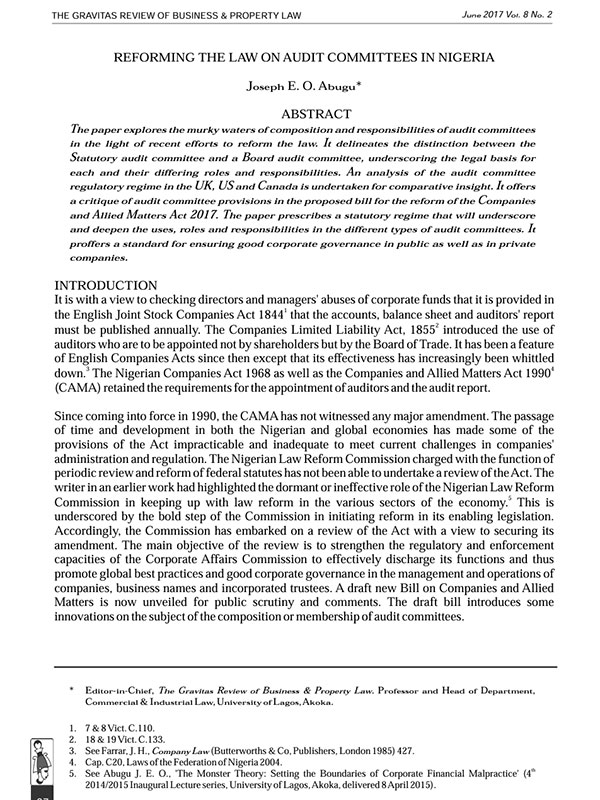
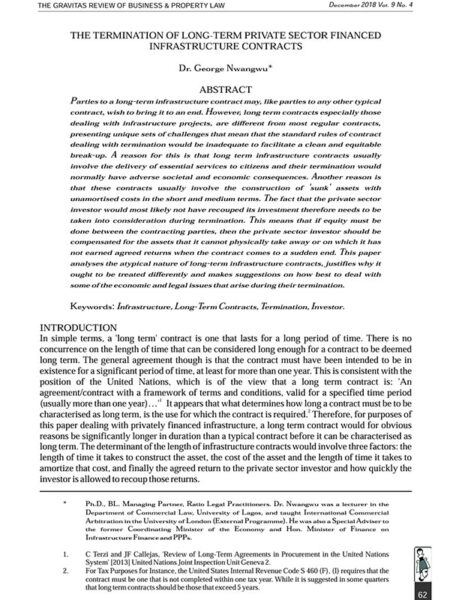
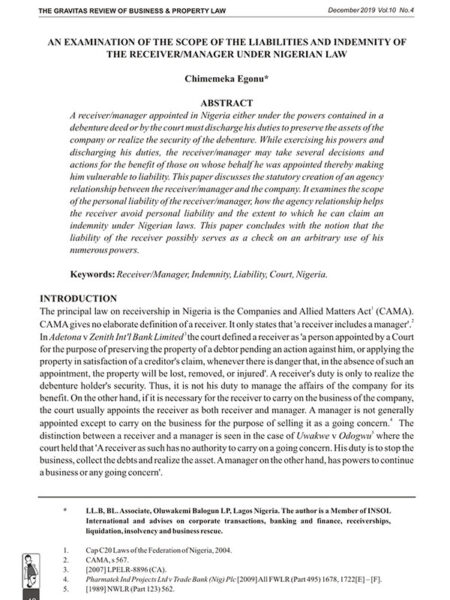
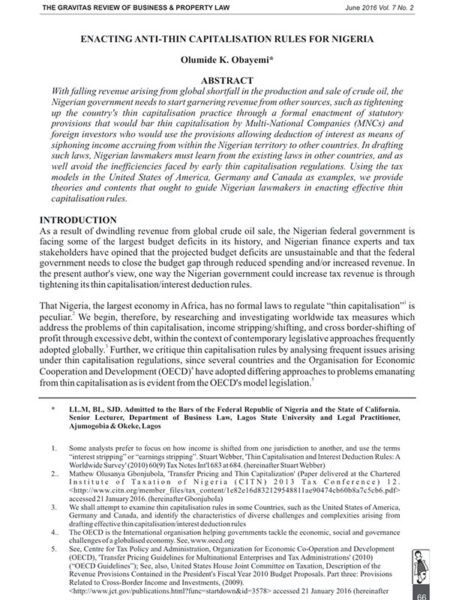
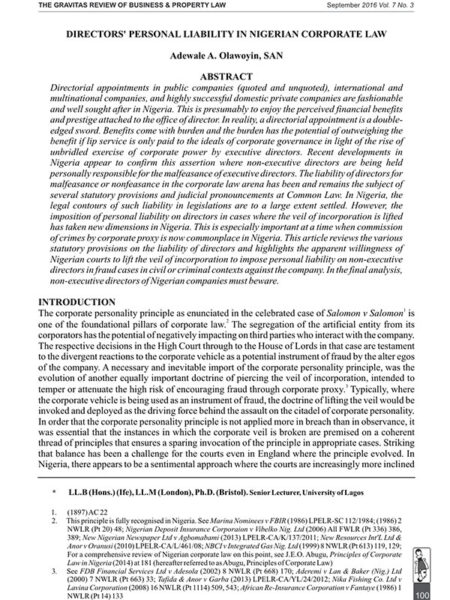


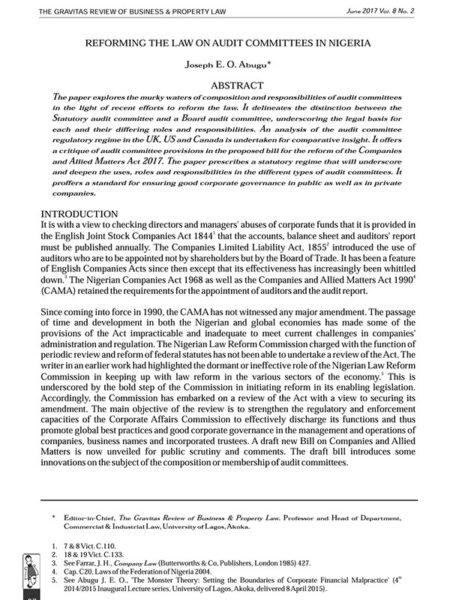
Reviews
There are no reviews yet.